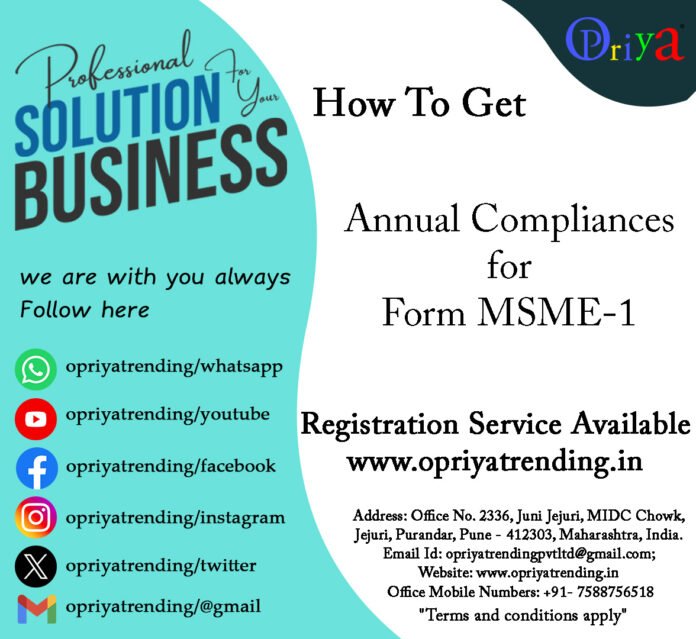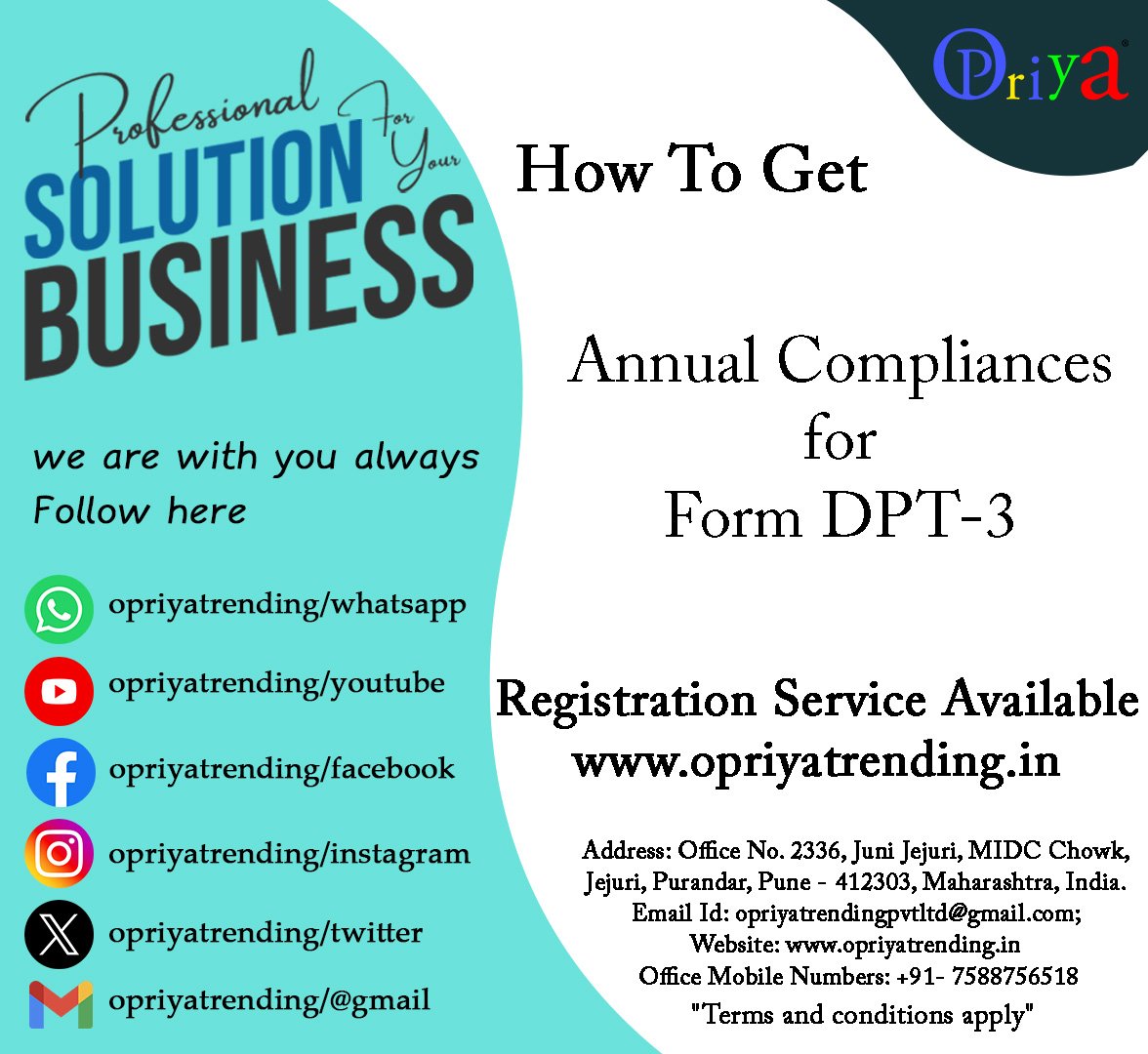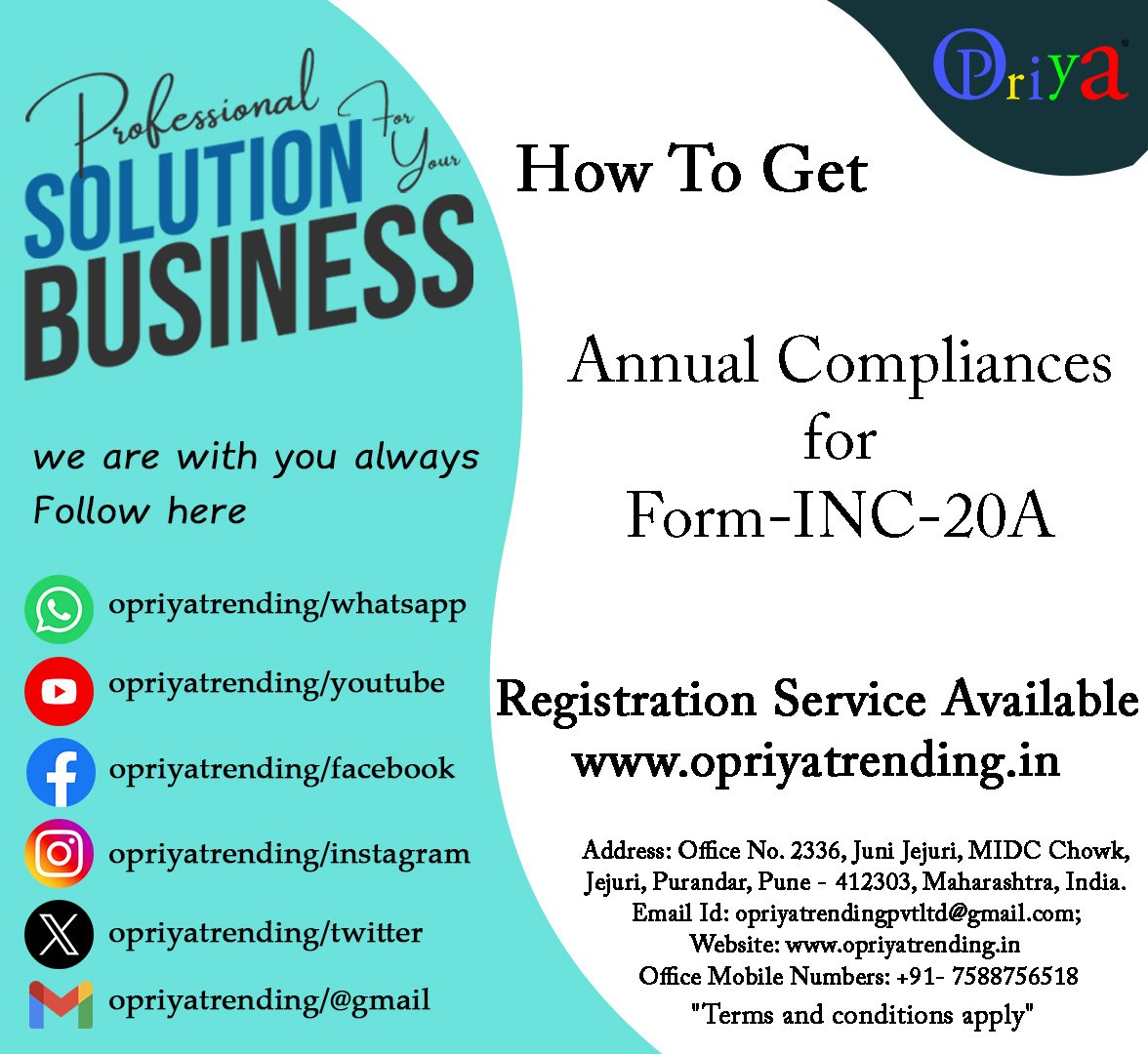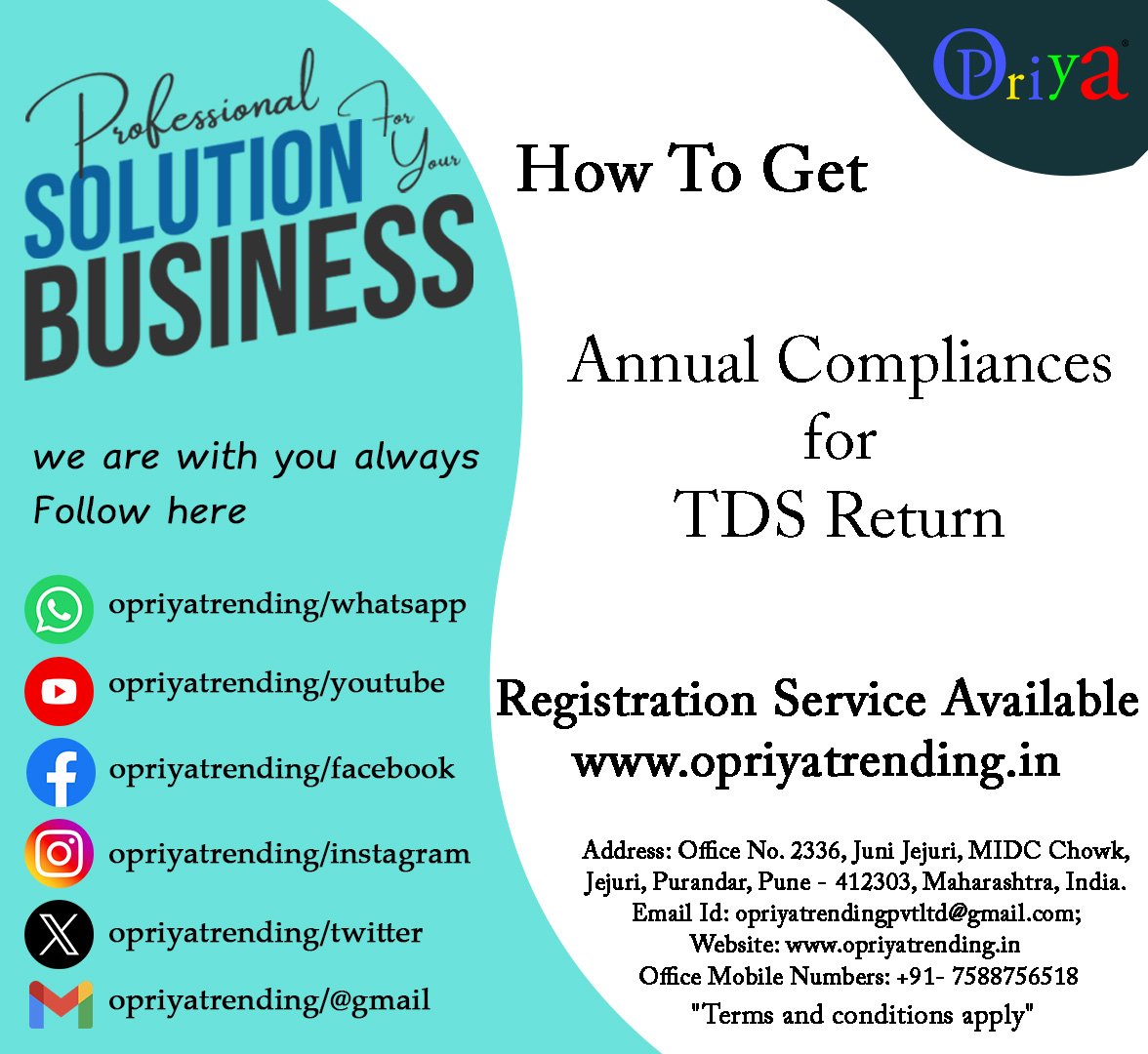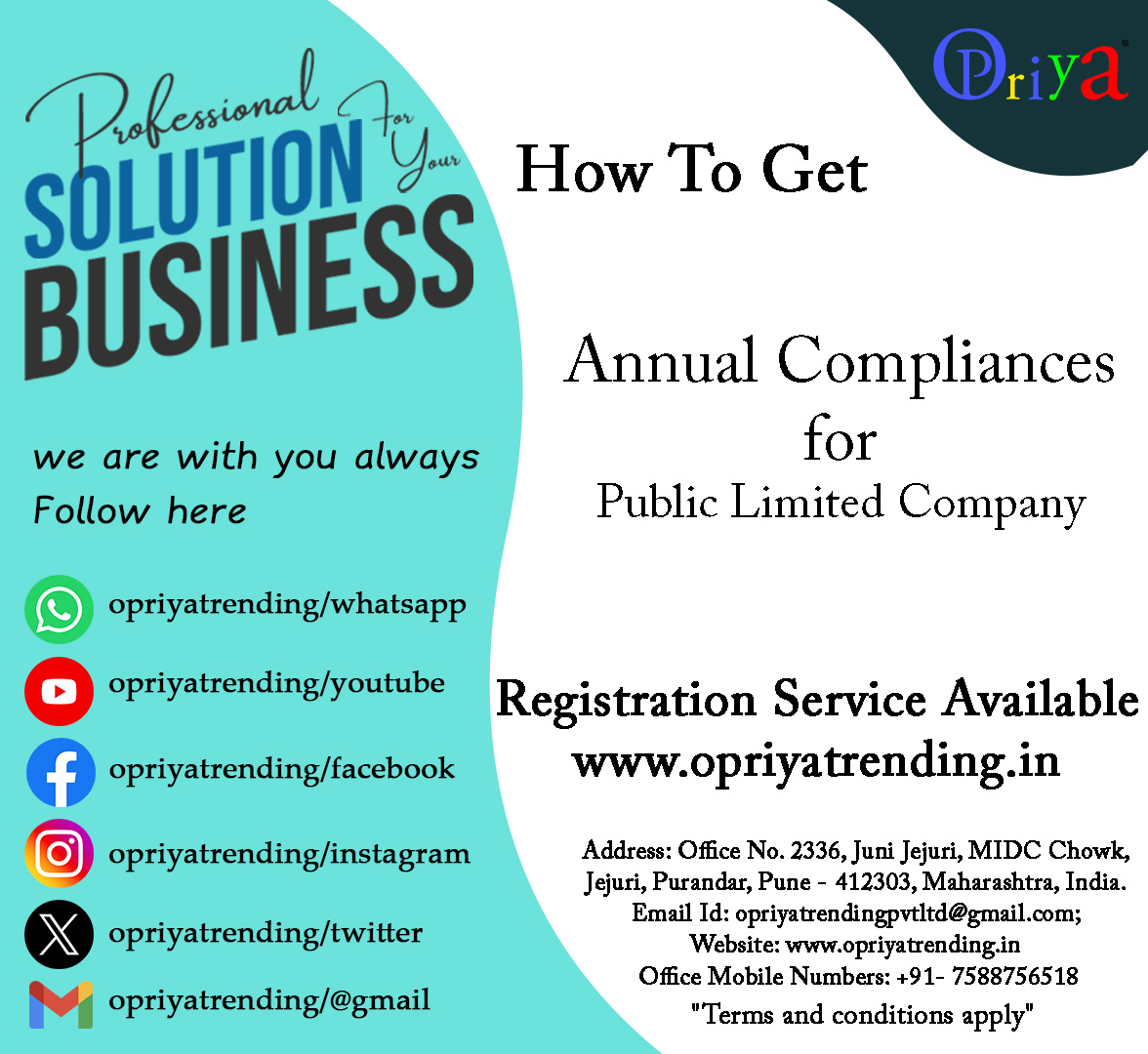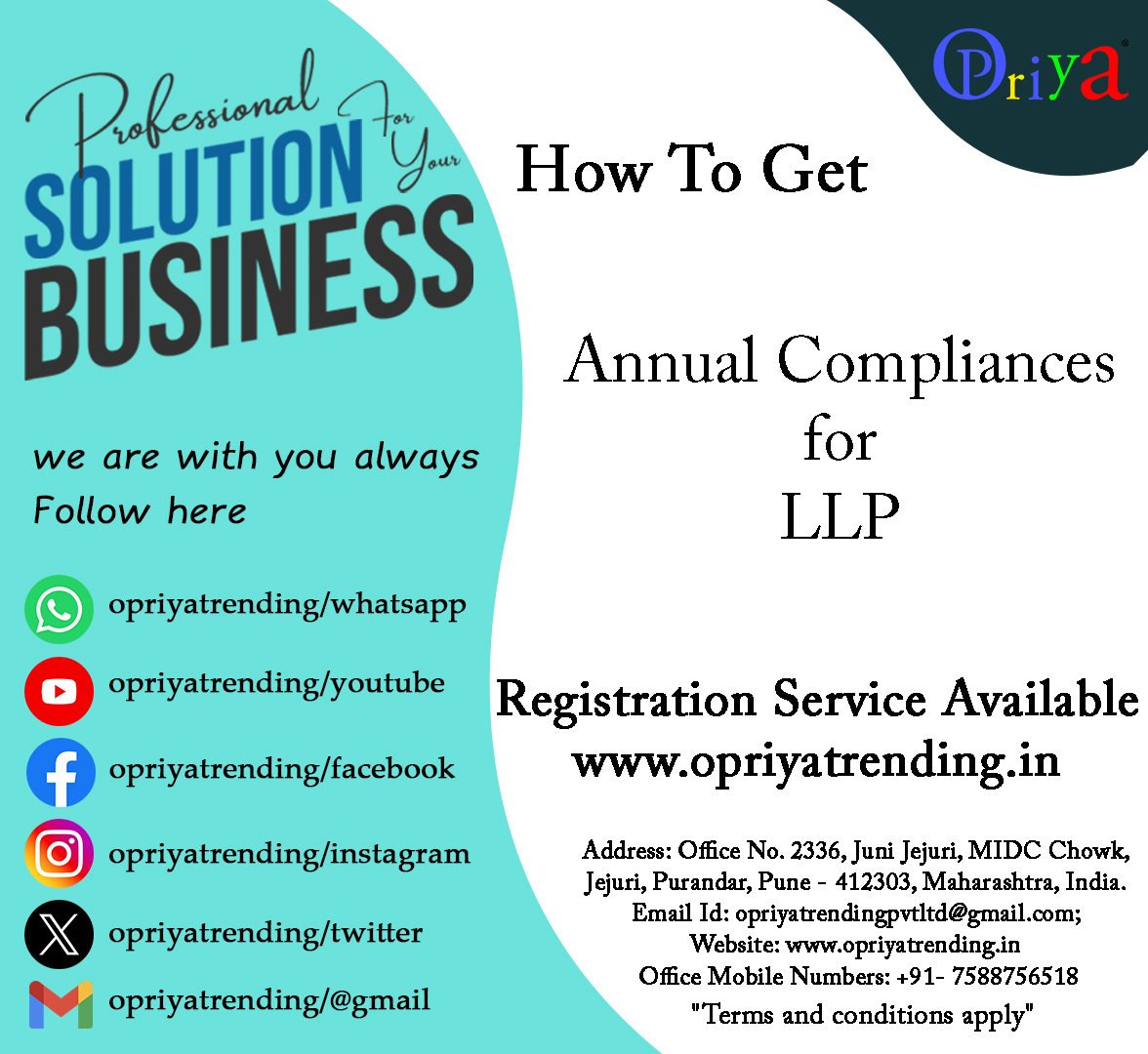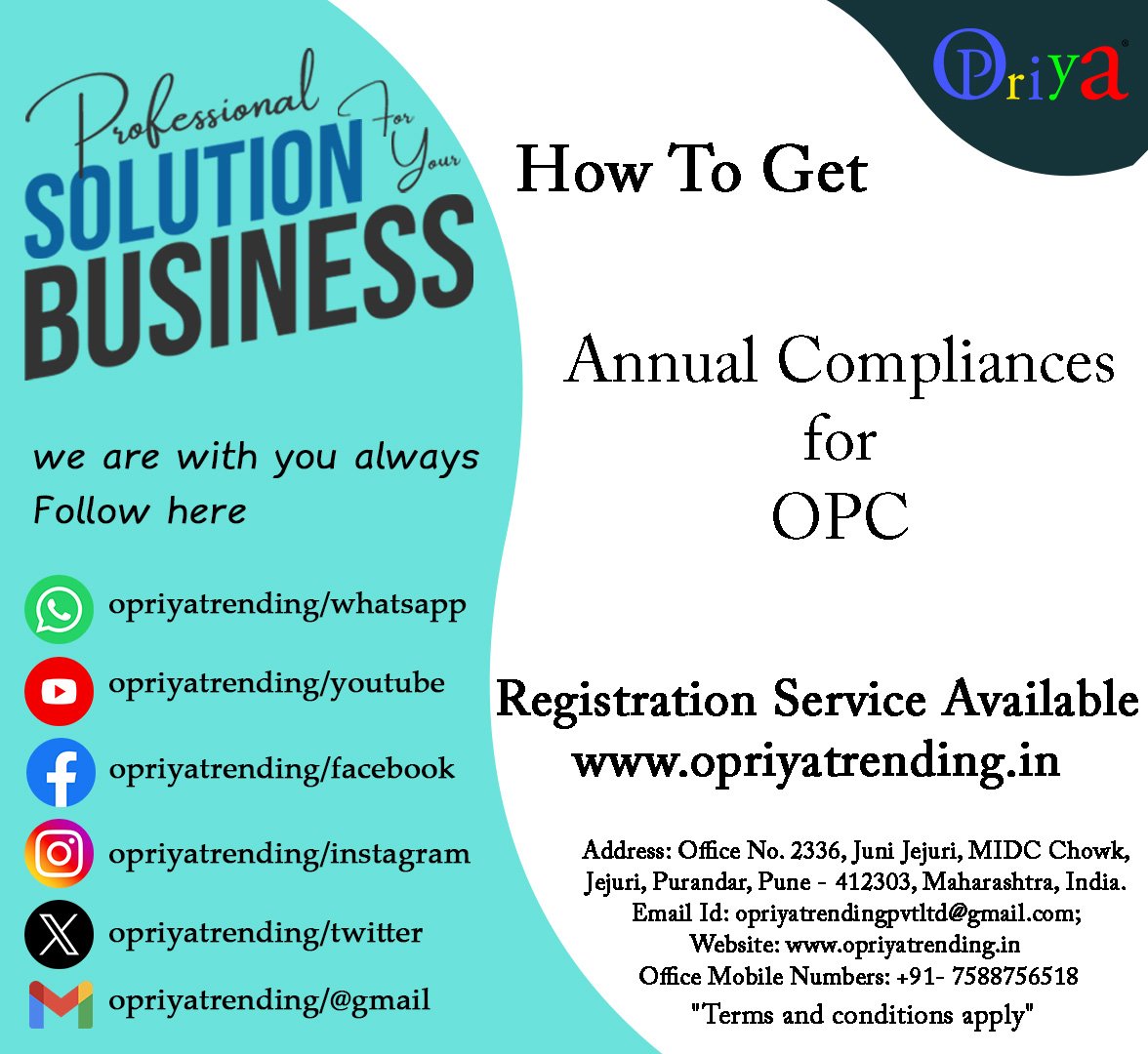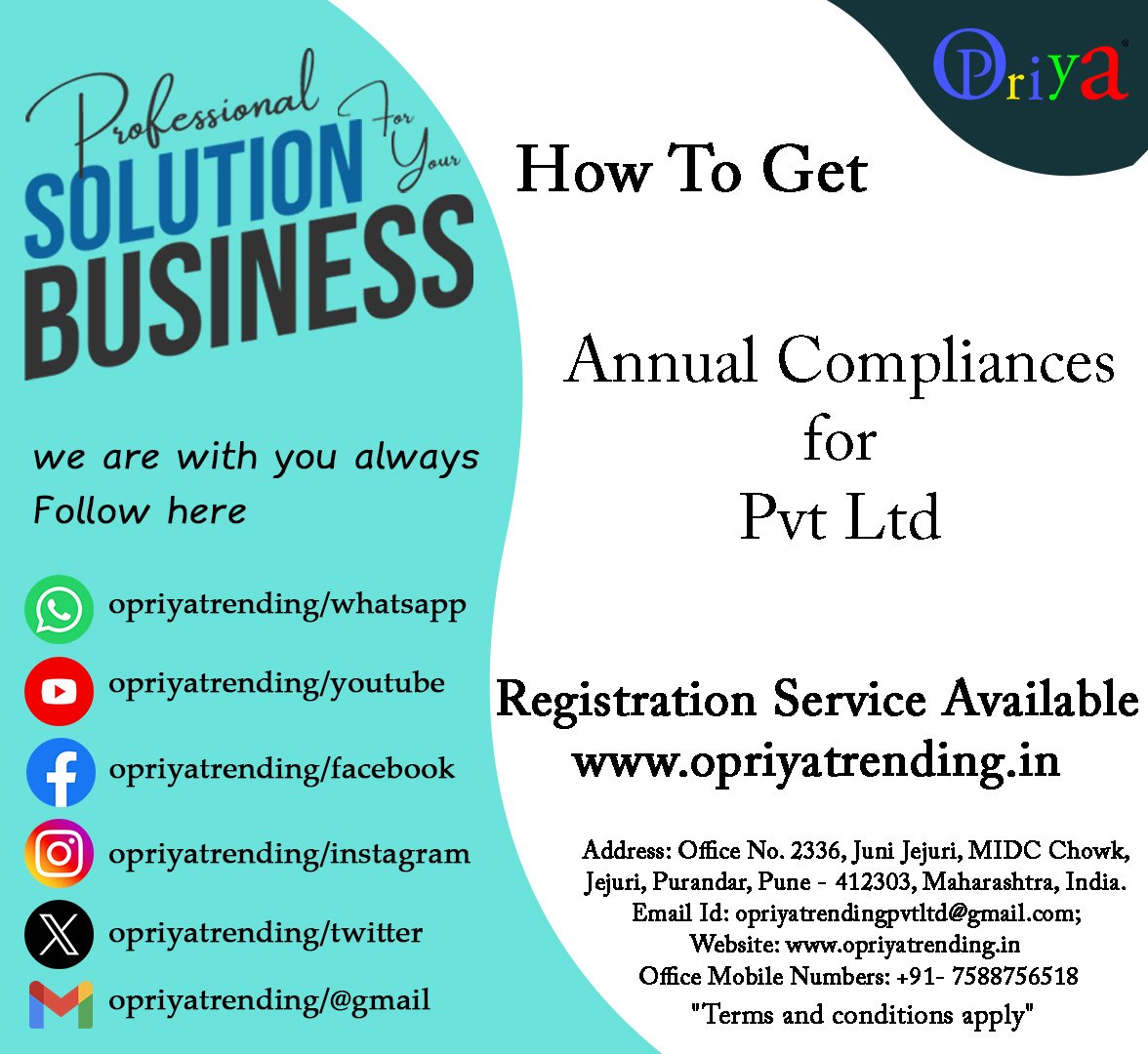Essential Annual Compliances and What is Accounting and Bookkeeping
Table of Contents
1. Introduction
Annual Compliances and What is Accounting and Bookkeeping are critical components for any business operating in India. Accounting and bookkeeping ensure that all financial transactions are accurately recorded, classified, and reported. Meanwhile, annual compliances refer to the legal obligations a company must meet each financial year, such as tax filings, statutory audits, and government reporting. These ensure transparency, prevent penalties, and boost the company’s credibility.
Annual Compliances and What is Accounting and Bookkeeping go hand-in-hand. Accounting creates the base upon which statutory filings are done, while compliance ensures those records are submitted to the authorities as per deadlines. Together, they help businesses maintain legal health, secure funding, and grow sustainably.
Every business—from startups to large corporations—needs to prioritize Annual Compliances and What is Accounting and Bookkeeping. Missing out can result in hefty fines, reputational damage, and in worst cases, closure of business. From recording daily invoices to preparing financial statements, and from GST returns to Income Tax and ROC filings, businesses must be compliant across the board.
Apply with Full Confidence 2025 by choosing O’Priya Trading Pvt Ltd for complete support in Annual Compliances and What is Accounting and Bookkeeping. Our team handles everything from journal entries to statutory filings with utmost professionalism.
2. Types of Licenses Offered
While Annual Compliances and What is Accounting and Bookkeeping themselves are not licenses, several regulatory registrations play a key role in ensuring business compliance:
- GST Registration – Essential for filing GST returns and maintaining compliance.
- PAN and TAN – Mandatory for Income Tax filings and TDS payments.
- MSME Registration – Useful for obtaining benefits under the MSME Act.
- Shop & Establishment License – Required by state governments for most businesses.
- Professional Tax Registration – Needed in some states for employees and employers.
These statutory registrations are integral to fulfilling Annual Compliances and What is Accounting and Bookkeeping. Without them, businesses can’t legally operate or submit necessary documents.
3. Who Needs These Services?
All types of business entities must engage in Annual Compliances and What is Accounting and Bookkeeping activities. These include:
- Private Limited Companies – Require detailed statutory compliance, audits, and filings.
- LLPs and OPCs – Have simpler yet mandatory reporting requirements.
- Proprietorships – Need accounting and compliance if turnover exceeds specified limits.
- NGOs and Societies – Must follow audit and filing mandates under trust laws.
- Startups – Require proper bookkeeping and timely filings to attract investors and grants.
Proper understanding of Annual Compliances and What is Accounting and Bookkeeping ensures that even a small business remains legally sound.
4. Why Choose O’Priya Trading Pvt Ltd a License Registration Service Provider?
O’Priya Trading Pvt Ltd offers professional services in Annual Compliances and What is Accounting and Bookkeeping, making your business journey stress-free. We provide:
- Expert Team – Chartered Accountants and tax professionals handle all tasks.
- One-Stop Solution – From bookkeeping to ROC filings under one roof.
- Affordable Plans – Competitive pricing to suit all business sizes.
- Timely Execution – Prevent penalties with on-time submissions.
- Data Confidentiality – Your business data is 100% secure.
Apply with Full Confidence 2025 and trust O’Priya to streamline Annual Compliances and What is Accounting and Bookkeeping for your enterprise.
5. Registration Process
The process of fulfilling Annual Compliances and What is Accounting and Bookkeeping involves several coordinated steps:
- Business Assessment: Understand your business size, operations, and compliance needs.
- Documentation: Gather financial documents, registration certificates, and login credentials.
- Bookkeeping Setup: Start with recording daily transactions and maintain ledgers.
- Statutory Calendar: Create a compliance calendar with deadlines for ROC, GST, and ITR filings.
- Audit Coordination: Appoint a CA for internal/statutory audit, if applicable.
- Filing of Returns: Submit GST, TDS, and ROC filings as per schedule.
- Compliance Review: Analyze past records for missed filings or non-compliance.
- Advisory & Support: Receive ongoing support for notices and queries.
This robust procedure ensures full control over Annual Compliances and What is Accounting and Bookkeeping, minimizing risks.
6. Required Documents
To ensure seamless execution of Annual Compliances and What is Accounting and Bookkeeping, the following documents are necessary:
- PAN and Aadhaar of Proprietor/Directors
- Incorporation Certificate and Company documents
- GST and Income Tax login credentials
- Bank statements
- Sales and purchase invoices
- Payroll records
- Ledger books and vouchers
- Previous audit reports
These enable a structured approach to Annual Compliances and What is Accounting and Bookkeeping, ensuring accuracy and timeliness.
7. Cost Involved (Professional Fees)
At O’Priya, pricing for Annual Compliances and What is Accounting and Bookkeeping starts from just INR 3,999/- annually. Packages include:
- Bookkeeping (monthly/quarterly)
- GST and ITR Filings
- Annual ROC Filing
- Audit Coordination
- Financial Reports Preparation
Combo plans for startups and small enterprises are also available. Apply with Full Confidence 2025 and save on compliance management.
8. Payment Refund Policy
Due to the customized and regulatory nature of Annual Compliances and What is Accounting and Bookkeeping services, all payments made are non-refundable. However, clients are entitled to:
- 30-Day Free Rectification Support – Errors from our end are corrected at no cost.
- Service Continuity Guarantee – We offer prompt corrective action.
Client satisfaction is our top priority at O’Priya Trading Pvt Ltd.
9. Terms and Policy
Clients availing Annual Compliances and What is Accounting and Bookkeeping services must agree to the following terms:
- Provide accurate and timely data.
- Cooperate during audit and filing processes.
- Accept digital communication and documentation.
Our services adhere strictly to Indian financial and legal norms. Privacy of client data is ensured throughout the process.
10. Time Take
The timeline for Annual Compliances and What is Accounting and Bookkeeping depends on entity type and data availability. Estimated timelines:
- Bookkeeping Setup – 2–3 working days
- GST/ITR Filings – Within 1–2 days of document readiness
- ROC Filings – 3–5 days
- Audit Completion – 5–7 working days
Apply with Full Confidence 2025 for timely compliance delivery.
11. Common Mistakes to Avoid
Ignoring Annual Compliances and What is Accounting and Bookkeeping can be detrimental. Common errors include:
- Backdated or unrecorded transactions
- Delay in GST or ITR filing
- Poor documentation
- Non-maintenance of statutory registers
- Overlooking audit appointments
Avoid these issues by trusting O’Priya – your partner for Annual Compliances and What is Accounting and Bookkeeping. Apply with Full Confidence 2025.
12. Call-to-Action
📩 Need expert help with Annual Compliances and What is Accounting and Bookkeeping?
Contact O’Priya Trading Pvt Ltd today:
- 📧 Email: opriyatrendingpvtltd@gmail.com
- 📱 WhatsApp: +91 7588756518 Chat Now
- 👍 Facebook: facebook.com/opriyatrending
- 🌐 Website: opriyatrending.in
Let us simplify your compliance journey.
13. FAQs
Q1: What is bookkeeping in a business?
Bookkeeping involves recording daily transactions and maintaining financial books.
Q2: Why are annual compliances important?
They ensure your business meets all legal obligations and avoids penalties.
Q3: What services are included in accounting and compliance?
Bookkeeping, tax filing, audits, and statutory returns.
Q4: Who must follow annual compliance?
All registered businesses including companies, LLPs, and large proprietorships.
Q5: What happens if you skip compliance?
It can result in fines, legal actions, and even business closure.
Q6: Is audit necessary for all businesses?
Audit is mandatory for companies and entities exceeding certain turnover.
Q7: Can O’Priya help with digital filings?
Yes. All our services are conducted via official government portals.
Q8: What’s the cost of these services?
Starts from ₹3,999/year depending on business size and scope.
Q9: How secure is my data?
100% confidentiality and data protection guaranteed.
Q10: Is there a refund for services?
No refunds, but rectifications are done free within 30 days.
O’Priya Trading Private Limited: All India License Registration Service Provider
In today’s complex regulatory landscape, obtaining licenses and regulatory approvals in India has become more essential than ever for businesses, institutions, and individuals. Whether it’s an arms license, FSSAI registration, company incorporation, or compliance with the latest government norms, having the right license determines your legitimacy, credibility, and operational capacity.
One company leading this transformation by providing seamless, reliable, and legally compliant license registration services across India is O’Priya Trading Private Limited. With a strong commitment to transparency, process efficiency, and client satisfaction, O’Priya Trading Pvt. Ltd. has emerged as a trusted name in the Indian licensing domain.
🔷 Company Overview
Legal Name: O’Priya Trading Private Limited
Nature of Business: License Registration, Compliance Advisory, Government Liaison Services
Operational Scale: Pan-India
Head Office: Registered in India, with service availability across all states and union territories
📞 Call-to-Action (CTA) – Apply Now with Confidence!
Ready to secure your Licence Apply with Full Confidence in All Indiaa?
👉 Contact Us Today!
📧 Email: opriyatrendingpvtltd@gmail.com
📱 WhatsApp: +91 7588756518🔗 Website: https://opriyatrending.in👍 Facebook: O’Priya Trading Pvt Ltd
Apply with Full Confidence in 2025.
🏛️ What Does O’Priya Trading Pvt Ltd Do?
O’Priya Trading Private Limited specializes in license registration services across India, offering a full range of end-to-end solutions to institutions, businesses, and individuals seeking regulatory permissions and licenses. From document preparation to submission, legal verification, and post-approval compliance, they serve as a single-window license consultancy provider.
🗺️ Pan-India Service Coverage
What makes O’Priya Trading unique is its all-India licensing facilitation network. Unlike regional agencies that operate within narrow jurisdictions, O’Priya has built an operational capacity to deliver services in every Indian state and union territory.
🌍 States Served Include:
- Delhi, Maharashtra, Uttar Pradesh, Gujarat, Rajasthan, Madhya Pradesh, Karnataka, Tamil Nadu, Kerala, Telangana, Punjab, Haryana, Assam, West Bengal, Bihar, Jharkhand, Odisha, Chhattisgarh, and more.
🏢 Cities with Active Clients:
- Mumbai, Pune, Delhi, Hyderabad, Bangalore, Kolkata, Ahmedabad, Chennai, Jaipur, Lucknow, Bhopal, Indore, Surat, Patna, and others.
Through a digital-first approach, coupled with experienced local legal liaisons, O’Priya ensures consistency in documentation, faster government approvals, and responsive client support.
💡 Why Clients Trust O’Priya Trading Pvt Ltd
1. ✅ Transparency & Ethics
🔒 100% Transparent | No Hidden Fees | Pan-India Services We believe in:
- Clear timelines
- Upfront pricing
- Honesty about payment policies (non-refundable, refundable, no surprises)
- Total confidentiality
2. 🧾 Documentation Expertise
Most license applications are delayed due to incomplete, incorrect, or improperly formatted documents. O’Priya’s legal consultants help you prepare foolproof documentation as per the latest formats demanded by regulatory bodies.
3. 🧑⚖️ Government Liaison
Whether it’s a district magistrate’s office, arms licensing authority, food safety department, or ROC office, O’Priya has built solid working relationships with relevant departments across states.
4. 🚀 Quick Turnaround
With strong process knowledge and digital tools, O’Priya delivers faster application submissions, consistent follow-ups, and streamlined approvals—ensuring minimal disruption to your business.
5. 💬 Client-Centric Support
They offer multi-channel communication: WhatsApp, email, video calls, and in some cases, in-person assistance. Clients are never left guessing about the status of their application.
📂 Service Flow: How It Works
Step 1: Free Consultation
Client reaches out via WhatsApp or email. A dedicated case manager responds with guidance and documentation checklist.
Step 2: Document Compilation
The team helps the client gather and format all required documents—identities, justifications, organizational registrations, etc.
Step 3: Application Filing
Forms are filled and submitted either physically or digitally, depending on the department’s workflow.
Step 4: Verification Support
Whether it’s a police inquiry or local office inspection, the team ensures you’re prepared and compliant.
Step 5: Approval & Delivery
Once approved, the license or certificate is collected and shared with the client via secure channels. Renewals and annual compliances are also managed, if opted for.
🔍 Industries Served
| Industry | Licenses Provided |
| Security | PSARA, Arms License |
| Food & Beverages | FSSAI, Shop Act, GST |
| Manufacturing | Factory License, Pollution NOC |
| Healthcare | Drug License, Biomedical Waste License |
| Retail & E-commerce | GST, MSME, Trademark |
| Education/Training | Arms License (Training), ISO, Accreditation support |
This industry-specific approach helps clients get exactly what they need—no more, no less.
📊 Success Metrics (As of 2025)
- ✅ 4,000+ Licenses Approved
- ✅ 95% Success Rate on First Submissions
- ✅ 100+ Cities Served
- ✅ 40+ License Categories Covered
- ✅ 500+ Institutional Arms Licenses Facilitated
🔄 Annual Compliance Services
Beyond just registration, O’Priya also offers post-licensing support, such as:
- Annual license renewals
- Change of address or ownership updates
- Firearms inspection audit preparation
- Document maintenance and digital filing
- Regulatory upgrades (as per rule changes)
This holistic approach ensures clients remain compliant even after license issuance.
📌 Why Choose O’Priya Over Others?
| Feature | O’Priya Trading Pvt Ltd | Typical Local Agent |
| Service Reach | Pan-India | Limited to district/state |
| Process Transparency | High (With Updates) | Often vague or hidden |
| Legal Expertise | Qualified Advisors | Informal guidance |
| Communication | Email, WhatsApp, Call | Mostly phone |
| Refund/Policy Clarity | Documented Terms | Unclear or non-existent |
| Renewal Reminders | Included | Rarely provided |
For businesses and institutions who cannot afford non-compliance or delays, O’Priya offers institutional-grade service quality at competitive prices.
🧭 Vision and Future Outlook
O’Priya Trading Pvt Ltd envisions becoming India’s most trusted regulatory compliance partner. With ongoing investments in:
- AI-based document automation
- Online dashboards for tracking license status
- Partnerships with regional lawyers and consultants
- Digital KYC and identity verification tools
…they aim to make India’s license ecosystem simpler, faster, and corruption-free.
Call-to-Action (CTA) – Apply Now with Confidence!
Ready to secure your Licence Apply with Full Confidence in All Indiaa?
👉 Contact Us Today!
📧 Email: opriyatrendingpvtltd@gmail.com
📱 WhatsApp: +91 7588756518🔗 Website: https://opriyatrending.in👍 Facebook: O’Priya Trending Pvt Ltd
Apply with Full Confidence in 2025.
🛡️ Legal. Reliable. Fast. That’s the O’Priya Promise.
📋 List of Services (with Reconstructed Links)
Below is the categorized list of services as per the website’s usage index. Where possible, we’ve added direct or pattern-based links.
1. Arms License Services
- Arms for Individual License Registration
- Arms for Institution License Registration
- Arms for Sports License Registration
- Arms for Dealers License Registration
- Weapons Manufacturing License Registration
2. AYUSH License
- AYUSH Loan & Others License
- AYUSH Manufacturing License
- AYUSH Distribution License
- AYUSH Clinic License
- AYUSH Retail License
3. BIS/ISI/ISO Certifications
4. Compulsory Registrations
- MSME/Udyam Registration
- Startup India Registration
- FSSAI Registration (Central/State)
- Legal Entity Identifier Code
- Trade License
- Fire License
- Digital Signature
- ICEGATE Registration
- FCRA Registration
- 80G and 12A Registration
5. DOT/Telecom Licenses
- ISP License
- NLD/ILD License
- UL VNO License
- PM-WANI Registration
- SACFA Clearance
- IP-1 Registration
- TEC Certificate
- AGR Return Filing
6. Drug License
7. Electrical License
8. GST & Taxation
9. IPR Services (Trademark, Copyright, Patent)
- Trademark Registration
- Trademark Objection Reply
- Patent Filing (Provisional/Complete)
- Copyright Registration
- Design Registration
10. Liquor License
11. MCA Services
- Private Limited Company Registration
- LLP Registration
- OPC Registration
- Annual MCA Compliance
- Company Closure
12. PESO License
13. PSARA License
14. Pollution Control
15. Regulatory Bodies
- NBFC Registration (RBI)
- FFMC & P2P Lending
- Legal Metrology Packager License
- IRDAI Corporate Agent License
📞 Contact O’Priya Trading Pvt Ltd Today
👉 Contact Us Today!
📧 Email: opriyatrendingpvtltd@gmail.com
📱 WhatsApp: +91 7588756518🔗 Website: https://opriyatrending.in👍 Facebook: O’Priya Trending Pvt Ltd
🛡️ Legal. Reliable. Fast. That’s the O’Priya Promise.
💖 Why opriyatrending.in is More Than Just a Service Platform
In a country as vast and complex as India, navigating government registrations can feel overwhelming, stressful, and even hopeless at times. But opriyatrending.in doesn’t just offer “services.” It offers reassurance, clarity, and a sense of control—when you need it most.
🛑 The Fear of Rejection, Delays, and Loss
You might have tried applying for licenses yourself before—endless documents, non-responsive departments, confusing portals. It can leave you feeling:
- ❌ Lost in bureaucracy
- ❌ Afraid your business will never take off
- ❌ Unsure who to trust
O’Priya Trading Pvt. Ltd. understands this fear—and fights it by giving you the guidance you were never offered before.
💪 A Partner in Your Growth Journey
Whether you’re a dreamer starting your first startup, a farmer protecting your land, a doctor opening a clinic, or a dealer building your future—this company walks beside you.
- They help you register your identity
- They protect your investment
- They stand between you and the wall of red tape
When opriyatrending.in helps you get your license, they’re not just checking boxes. They’re helping you move forward with confidence.
🧠 A Calm Voice When Everything Feels Chaotic
In a system full of delays, errors, and vague processes, opriyatrending.in offers:
- 🧾 Clear documentation guidance
- 🕐 Honest timelines
- 📞 A human voice when you call or WhatsApp
When you’re in a crisis—whether it’s a license rejection or urgent compliance—they don’t ignore you. They respond. They care.
🌱 Your Dreams Deserve to Be Legal, Protected, and Empowered
Every license, every registration, every clearance—represents a life goal.
It’s your right to:
- Own a weapon for protection
- Start a small company
- Launch a new StartUp company
- Open a food business legally
- Register a company and pass it on to your children
Opriyatrending.in ensures that no dream is delayed because of red tape.
🔗 It’s Not Just a Website It’s a Lifeline.
📍 When you open opriyatrending.in, you’re not just clicking on a page.
You’re saying:
“I’m ready to take a step toward my dream, but I need help.”
And that’s exactly what O’Priya Trading Pvt. Ltd. is here for.
📞 Contact O’Priya Trading Pvt Ltd Today
👉 Contact Us Today!
📧 Email: opriyatrendingpvtltd@gmail.com
📱 WhatsApp: +91 7588756518🔗 Website: https://opriyatrending.in👍 Facebook: O’Priya Trending Pvt Ltd
🛡️ Legal. Reliable. Fast. That’s the O’Priya Promise.
